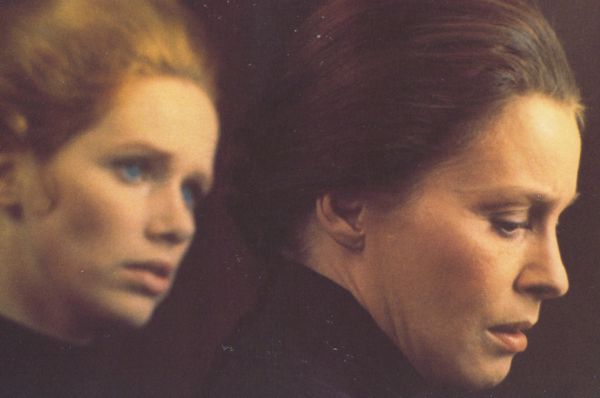Artist as Narcissist

The subject has been retread many, many times. The aloof artist remains such, not out of some noble obligation, not necessarily because he can't relate to others, but because he's too self centered to care.
Or is that really the case?
Is this an incurable affliction? One psychologically ingrained due to family and social circumstance? Or is it something far more shallow? This is given poignant consideration in the scene of Ingmar Bergman's Autumn Sonata from where this frame is taken. The mother's hands have taken the keys, their stance betraying a lifetime of devotion to a single craft.
The mother Charlotte, played by Ingrid Bergman, had begun the scene by coercing her daughter Eva, played by Liv Ullmann, to play the piano for her. Eva reluctantly began to play Chopin's 2nd prelude in A minor, punctuating the appropriate lack of a soundtrack in this picture. She begins hesitantly, eventually digging her fingers into the piece. She drops the heavy chords in a steady order, pulling off an adequate interpretation and bringing the prelude to a pensive close. Charlotte sits stunned. But what we think would turn to an expression of maternal pride instead becomes a subtle patronization. When Eva asks her "Did you like it?" the mother beguiles her with an affectionate "I liked you."
Eva senses this subtlety and becomes cross. She insists her mother show her the proper interpretation. Charlotte at first hesitates and then jumps at the chance. She first dictates the few things that Eva could have executed better. She explains the mood that surrounds Chopin's brooding prelude and with a confident "like this" begins her playing of the same piece. Charlotte pulls the previously steady recital taut, flawlessly wresting each phrase and change into place.
Sven Nykvist's brilliant shot work comes into definite play in this sequence. We see the mother facing left, buried in the piece and narcissisticly absorbed in reflecting Chopin's glory. The daughter sitting next to her slowly turns a baleful expression toward her mother. A lack of communication is painfully apparent as both of them face opposite directions, Eva's face showing the sadness of knowing this is how it's always been. Charlotte, a concert pianist, had often abandoned her for the sake of her art. Now, here in this same room with the mother that she hadn't seen in seven years, she commits the same crime right in front of her eyes.
As someone who enjoys art and the creation of it, I can't help but notice my own parallel to Charlotte. I rarely if ever share anything of an artistic bent with my family. So many of us seem content to keep to ourselves. Does our art hinder us from being engaging people? We may get by being quiet, even amiable. But is this the way to live?
Some of us may be afraid to open up because we're afraid people won't understand, that they won't 'get it'. What if we show them there is nothing to get? Let them know what we do artistically is merely an expression and nothing to be put off or intimidated by. That way we won't be locked into our own rooms, our own worlds. A place that can be heady and beautiful at times, but often predatory and satanic as focus intensifies on oneself. I know that I can work to escape it, and maybe most of us can in one way or another. "One isolating himself will seek his own selfish longing." - Proverbs 18:1
That's what makes group musicing the greatest form of art. In my humble opinion.

